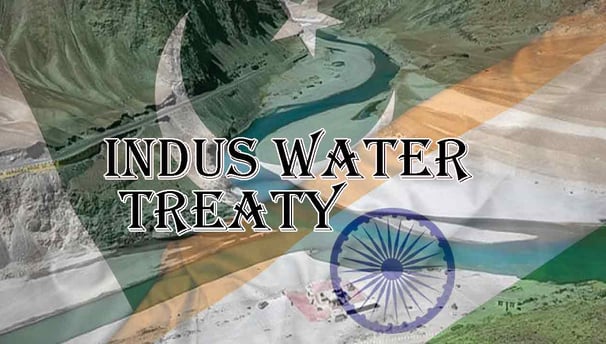Indus Waters Treaty Suspended: India’s Response to Pahalgam Terror Attack
Following the deadly Pahalgam terror attack that killed 26 civilians, India has suspended the Indus Waters Treaty with Pakistan. Explore the reasons behind this bold move and its potential impact on regional water sharing and diplomacy.
MISCELLANEOUS
Deepita
4/23/20251 min read


In the wake of the tragic terror attack in Pahalgam, Jammu & Kashmir, that claimed the lives of 26 civilians and left many injured, India has taken a bold and unprecedented step by suspending the Indus Waters Treaty — a decades-old water-sharing agreement with Pakistan. The move has stirred political, environmental, and diplomatic ripples across South Asia.
What Is the Indus Waters Treaty?
Signed in 1960, the Indus Waters Treaty (IWT) is a water-sharing agreement between India and Pakistan, brokered by the World Bank. It allocates control over the eastern rivers (Ravi, Beas, and Sutlej) to India and the western rivers (Indus, Jhelum, and Chenab) to Pakistan, while allowing India limited use of the western rivers for non-consumptive purposes like hydropower generation .
Why Has India Suspended the Treaty?
The suspension follows the Pahalgam terror attack, which India attributes to Pakistan-backed militants. A previously unknown group, Kashmir Resistance, claimed responsibility, alleging the victims were linked to Indian security agencies . India's Foreign Secretary, Vikram Misri, stated that the treaty would remain suspended until Pakistan "credibly and irrevocably abjures its support for cross-border terrorism."
Possible Impacts of the Suspension
Diplomatic Fallout: The move is expected to further strain India-Pakistan relations. Pakistan has already expressed strong objections and may approach international forums.
Water Security Concerns: With the Indus basin being vital for agriculture in both nations, disruptions in water-sharing may affect millions of lives.
Regional Instability: The suspension adds a new dimension to existing geopolitical tensions in South Asia, with possible implications for China’s regional stance too.
The suspension of the Indus Waters Treaty underscores the fragility of diplomatic agreements amid ongoing security concerns. As tensions escalate, the international community may play a role in facilitating dialogue to address both water-sharing disputes and broader security issues in the region.
